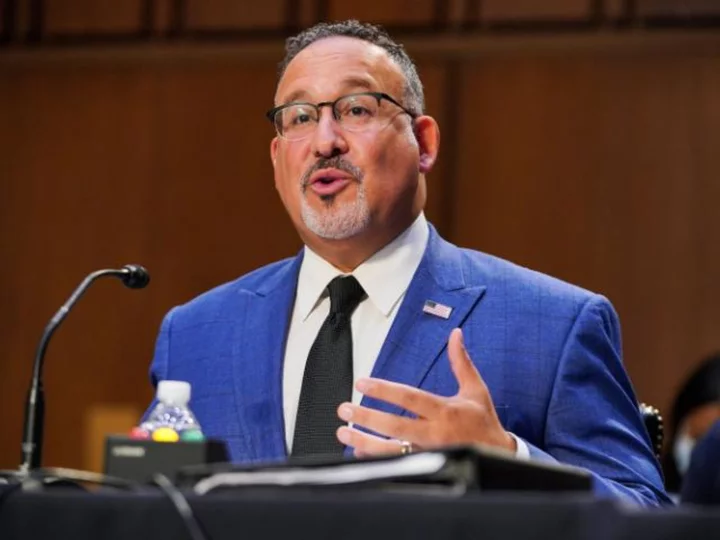The Biden administration is releasing new guidance and "legal resources" for colleges and universities that want to ensure student diversity in the admissions process after the Supreme Court gutted affirmative action in June.
"This is a moment of great urgency in higher education," Secretary of Education Miguel Cardona said during a call with reporters Monday morning.
He criticized the court's ruling for taking away "a tool that colleges have used for decades to build diverse campus communities and create equitable opportunities for students of all backgrounds," and said past state-level bans on affirmative action led to fewer students of color applying and being admitted to college.
The new guidance from the departments of Justice and Education basically boils down to: Colleges and universities are allowed to consider how race has impacted a student's life, but they are not allowed to use overall demographic data to influence their admissions decisions.
"The Supreme Court's opinion recognized what we know to be true, that race can be relevant to a person's life or lived experience and they impact one's development motivations, academic interests or personal or professional aspirations," Associate Attorney General Vanita Gupta told reporters. "That impact can still be considered in university admissions."
An official with the Department of Education explained the guidance was "explicit" that admissions officers "are not, by the court's decision, prevented from learning an individual applicant's race."
It also includes other steps institutions can take to increase diversity in a student body. For example, institutions can conduct targeted outreach and recruitment in underserved communities. They can also collect and consider demographic data -- even if their admissions decisions cannot be influenced by that data -- and can run programs to "support the retention and success of students of diverse backgrounds."
"Remember," Cardona said, "nothing in the court's decision denied the value of diversity and education."
Gupta said that while the decision "changes the landscape for admissions in higher education, it should not be used as an excuse to turn away from long-standing efforts to make those institutions more inclusive."
"We will continue our fight to ensure that students, in particular, and society as a whole reap the benefits of that diversity," she said.
The Department of Education also plans to issue a comprehensive report later this year on the "most effective and promising strategies for colleges to lawfully cultivate diverse applicant pools and achieve diverse student bodies," Cardona added.
"This moment demands the same courageous commitment to equal opportunity and justice we saw from leaders at the height of the Civil Rights Movement," he said.
Administration officials have been scrambling to offer resources to colleges that had their admissions processes upended by the decision. Earlier this month, the administration hosted the National Summit on Equal Opportunity in Higher Education to find ways to support colleges that want to promote diversity.









